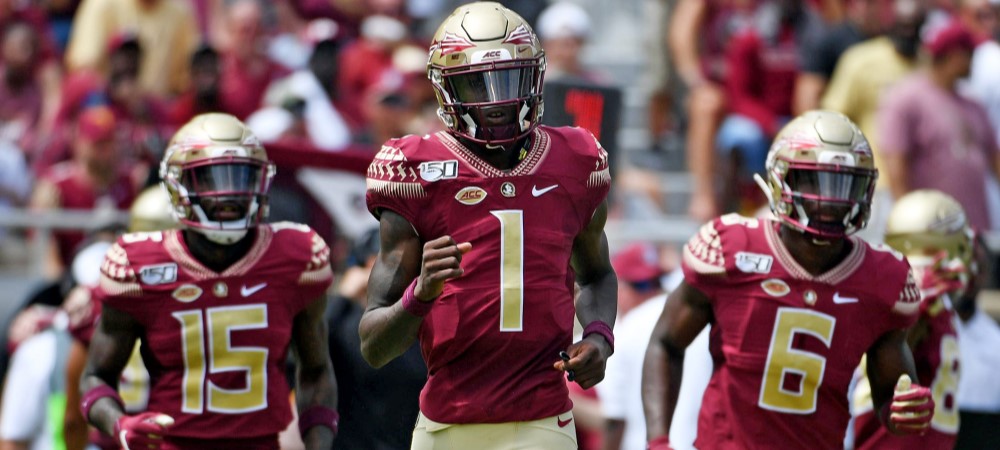- California has recently passed the Fair Pay to Play Act.
- Florida has pre-filed FL HB 251 to do the same for their student-athletes.
- The NCAA has threatened to remove California schools from the NCAA.
TALLAHASSEE, Fla. – Florida lawmakers have filed their own version of the Fair Pay to Play Act bill on Monday.
State Rep. Kionne McGhee filed FL HB 251 to give student-athletes a new source of revenue. This bill is very similar to the Fair Pay to Play Act that was passed and signed in California.
If passed, student-athletes in Florida will gain the ability to profit from their name and likeness. With an agent’s support, they can allow companies to use their likeness in advertisements. This means that student-athletes could appear on television commercials or on ads on the internet and profit from them. This was strictly forbidden by the NCAA.
The main difference is when FL HB 251 would go into effect if it passes. The Florida bill would allow student-athletes to begin profiting as soon as July 1, 2020. In California, the bill will not go into effect until January 1, 2023. This means that Florida would have a jump on California.
The NCAA fears that states that pass laws similar to the Fair Pay to Play Act will create an imbalance in recruitment. Student-athletes are more likely to be drawn to schools where they could earn money. The NCAA tweeted that a patchwork of different laws creates an uneven playing field. But what the NCAA says is falling on deaf ears in Florida.
“Many of these kids aren’t from families that can afford to send them money, but they’re sports superstars and household names. That’s not fair. It’s time we allowed these adults the ability to earn a living for themselves and their families while they make a fortune for others and entertain millions of fans. The insistence that college athletes follow a strict definition of being ‘non-professionals’ is a holdover from decades ago and doesn’t accurately reflect modern college athletics,” said State Rep. McGhee.
Other lawmakers across the US feel the same way. South Carolina lawmakers plan on introducing their own bill in the near future. Washington State, Colorado, and Maryland lawmakers have expressed similar interests as well.
Fair Pay To Play type bills could also impact legal sports betting as well. With more exposure and brand recognition for college athletes, naturally more interest from the public will follow. And as sports betting weaves it’s way into the American mainstream a little more with each passing day, it becomes inevitable that those two paths will intersect in some manner at some point.
Beyond the obvious increase in TV ratings and ad revenue, what else could be a by product? Will college stars endorse casino brands in the future? Which by default would mean they are also endorsing the book that casino runs. Will more states ban betting on college sports? At some point will conferences or the NCAA monetize their data and partner with sportsbooks in a co-branded deal?
Despite the grievances from the NCAA, the FL HB 251 has been filed. The 2019 legislative session is over, so no action will happen with the bill for now. The legislative session in Florida opens back up on January 14, 2020.
Advertising Disclosure
In order to provide you with the best independent sports betting news and content LegalSportsBetting.com may receive a commission from partners when you make a purchase through a link on our site.
News tags: California | Colorado | Fair Pay to Play Act | FL HB 251 | Florida | Kionne McGhee | Maryland | NCAA | South Carolina | Washington

Daniel is a writer that enjoys writing to inform readers. When Daniel was writing for The Borgen Project, he liked informing the world about victories in global poverty issues. Daniel is also an avid horse racing fan who has been going to the track with his father for over a decade betting the ponies. When he is not writing about sports betting or at the track, Daniel loves playing video games and watching sports in his spare time.


 College Football Betting
College Football Betting Best Online Sports Betting
Best Online Sports Betting Best Legal NFL Betting
Best Legal NFL Betting States With Legal Sports Betting
States With Legal Sports Betting Sports Betting Events
Sports Betting Events




